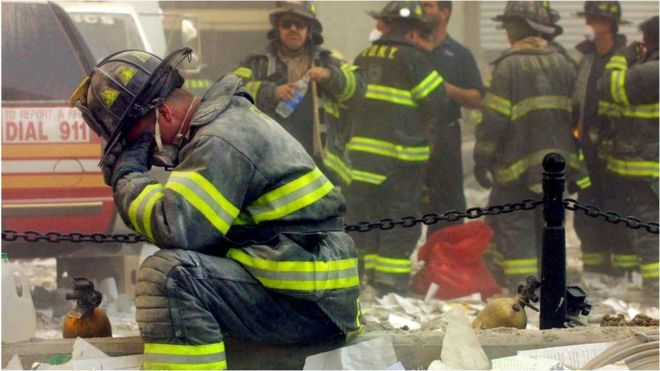9/11 attacks: What's happened to al-Qaeda?

On the 19th anniversary of the 9/11 attacks in the US, the perpetrator - the then-Afghan based jihadist group al-Qaeda - is in a state of disarray.
Its branch in Syria was silenced in June by a rival force; in Yemen it suffered a defeat at the hands of rebels shortly after losing its leader in a US drone strike; and the leader of its North Africa branch was killed in a French raid in Mali in June and is yet to name a successor.
Meanwhile, al-Qaeda's leader, Ayman al-Zawahiri, has been uncharacteristically absent for months, prompting speculation that he might be dead or incapacitated.
But al-Qaeda's Africa branches, in Somalia and Mali, remain a potent force.
Ideologically, al-Qaeda faces a familiar dilemma for the jihadist movement: to modernise and show flexibility in order to win over ordinary Muslims, and basically survive; or stick to strict jihadist principles and risk alienating Muslims.
Each path has its risks.
The first could jeopardise the group's jihadist credentials and lead to splits and defections by hardliners, while the second could significantly limit operational capacity, even to the point of the group's demise.
No comments:
Post a Comment